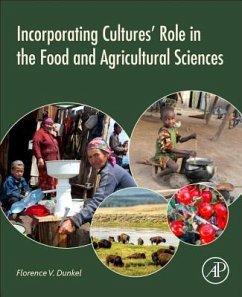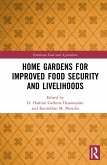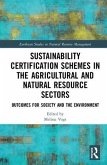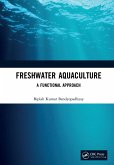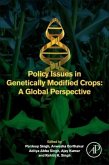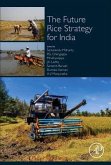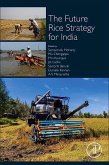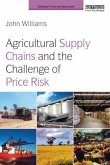Incorporating Cultures' Role in the Food and Agricultural Sciences addresses the practical needs of the professors, administrators and students who often face challenges of working together with Indigenous peoples with whom they have no prior experience. Missed communication, failed projects and unrealistic goals are daily realities. Academia and industry often encounter frustration in recruiting and retaining Native American students and other ethnicities.
This text is a guide for anyone working in the food or agriculture disciplines or industries, particularly for those working with people of a culture different from one's own. Comprehensive, full awareness of one's own culture is a prerequisite for effective teaching and learning within another culture. This book is replete with stories, examples and peer-refereed journal articles to help build awareness. These stories, examples and articles from multiple voices are placed over a basic underlying framework that is summed up in the title of the book itself.
This text is a guide for anyone working in the food or agriculture disciplines or industries, particularly for those working with people of a culture different from one's own. Comprehensive, full awareness of one's own culture is a prerequisite for effective teaching and learning within another culture. This book is replete with stories, examples and peer-refereed journal articles to help build awareness. These stories, examples and articles from multiple voices are placed over a basic underlying framework that is summed up in the title of the book itself.
" As one who has spent an entire career in international research and development, these case studies of immersion activities underscore the concept that there are several "right" answers to the question of "what works" as students and faculty identify their own world view, and the impact it has on understanding other cultures. Dunkel convincingly presents the challenge that some form of immersion is a must for any and all policies makers, researchers and practitioners seeking to effectively serve those they represent." --I. Miley Gonzalez, Former Undersecretary for Research, Education, and Economics at the U.S. Department of Agriculture Former Deputy Director General of CATIE, Costa Rica
"Storytelling is one of the most ancient, effective and universal means of transferring knowledge. Throughout this text, Dunkel expertly incorporates highly impactful and memorable stories that assist the reader in understanding the interdependencies of culture, food and science. While this book should be required reading for students of agricultural science and anyone doing what is commonly referred to as international development work, its careful overview of the holistic process also makes it a very useful text in undergraduate and graduate courses on education, ethnography and intercultural communication." --David Di Maria, Associate Vice Provost for International Programs, University of Maryland-Baltimore
"Hundreds of students and practitioners have benefited from Dunkel's holistic and visionary approach to incorporating cultural considerations in food and agricultural sciences. This book presents readers with the same opportunity. By carefully documenting keen insights and illustrative case studies that have emerged over the course of two decades, this book will prove to be a valuable resource for educators. Dunkel's abundant ingenuity, compassion, commitment, and wisdom inform every page." --Katy Hansen, PhD student, University Program in Environmental Policy, Duke University
"Storytelling is one of the most ancient, effective and universal means of transferring knowledge. Throughout this text, Dunkel expertly incorporates highly impactful and memorable stories that assist the reader in understanding the interdependencies of culture, food and science. While this book should be required reading for students of agricultural science and anyone doing what is commonly referred to as international development work, its careful overview of the holistic process also makes it a very useful text in undergraduate and graduate courses on education, ethnography and intercultural communication." --David Di Maria, Associate Vice Provost for International Programs, University of Maryland-Baltimore
"Hundreds of students and practitioners have benefited from Dunkel's holistic and visionary approach to incorporating cultural considerations in food and agricultural sciences. This book presents readers with the same opportunity. By carefully documenting keen insights and illustrative case studies that have emerged over the course of two decades, this book will prove to be a valuable resource for educators. Dunkel's abundant ingenuity, compassion, commitment, and wisdom inform every page." --Katy Hansen, PhD student, University Program in Environmental Policy, Duke University

